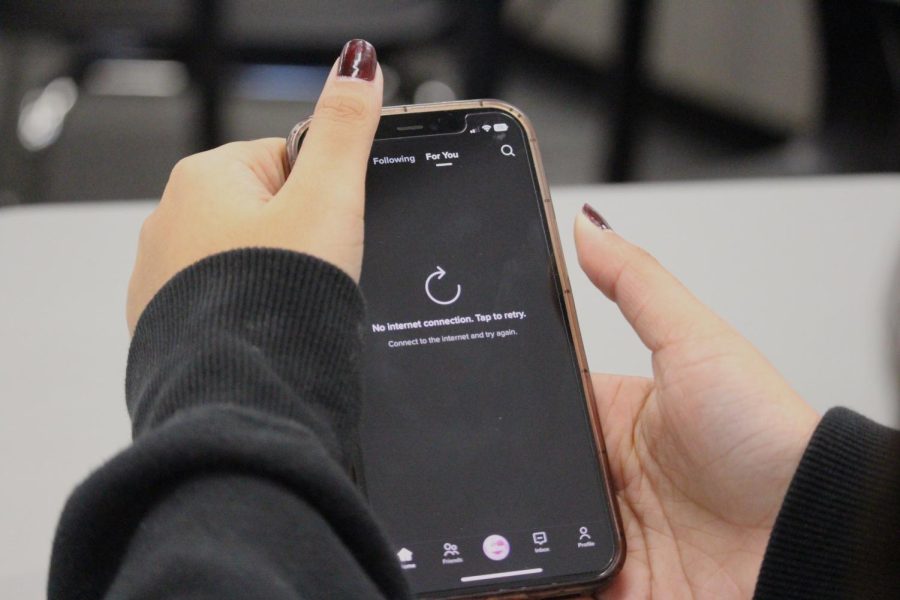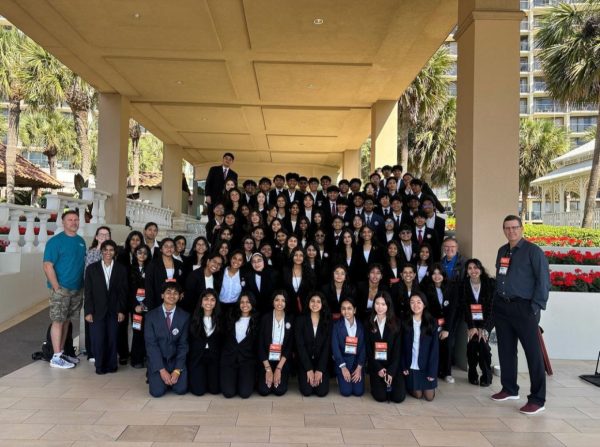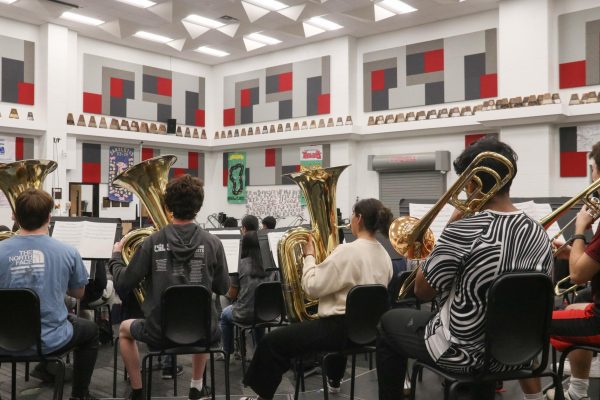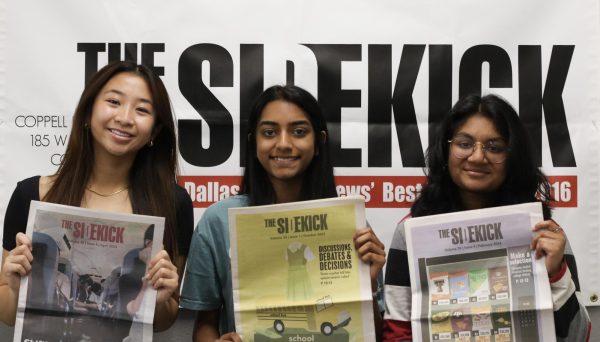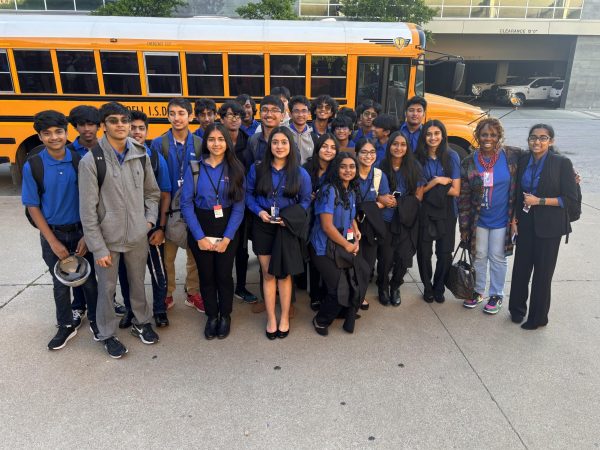Data privacy concerns contribute to Abbott’s statewide TikTok limitations
Governor Greg Abbott announced a statewide plan limiting access to TikTok relating to data privacy legislation. Since then, TikTok has been blocked on government-issued devices and WiFi networks on schools and universities across the state.
On Feb. 6, Governor Greg Abbott announced a statewide plan limiting access to TikTok in the latest step of a series of developments since 2020 relating to data privacy legislation.
The plan includes key elements such as banning and preventing the downloading or use of TikTok on any state-issued devices, prohibiting employees from conducting state business on personal devices with the banned technologies and identifying sensitive areas within agencies that are exposed to prohibited technology-enabled devices and banning devices in these areas. It will also implement network-based restrictions on any device in agency networks and continuously update the list of prohibited technologies.
“The security risks associated with the use of TikTok on devices used to conduct the important business of our state must not be underestimated or ignored,” Abbott said in the press release announcing the plan.
According to Coppell ISD Executive Director of Technology Stephen McGilvray, TikTok has always been blocked at all levels for students. The app is inaccessible on school-issued iPads and CISD WiFi, but it can be accessed via cell networks and personal devices. While staff are able to access TikTok and all other social media platforms under the district’s Responsible Use for Technology resources policy, students are allowed to access only Facebook and Twitter, and only for educational purposes.
CISD head communication intern Priyanka Bhutani, a Coppell High School senior, is frequently on social media for the district, and finds the system “lifesaving” for sending out alerts and reminders to district families. Even though the district does not have a TikTok, she finds the restrictions on the app justified.
“Personally, I wouldn’t use TikTok to get critical information,” Bhutani said. “It’s hard to trust what you’re seeing on TikTok because of the algorithm. You like one video, and it’s your entire For You Page.”
A greater effect is felt at places of higher education, which typically have less restrictions than K-12 school districts in terms of internet content. Several university campuses have banned the app across Texas since Abbott’s December directive. In fact, the University of Texas at Dallas, University of Texas at Austin and the Texas A&M University System all banned the app within the week of Jan. 6.
TikTok spokesperson Jamal Brown responded to the restriction at universities, citing the app’s disappointment “that so many states are jumping on the political bandwagon to enact policies that will do nothing to advance cybersecurity in their states and are based on unfounded falsehoods about TikTok.”
“We’re especially sorry to see the unintended consequences of these rushed policies beginning to impact universities’ ability to share information, recruit students, and build communities around athletic teams, student groups, campus publications, and more,” Brown wrote in a statement.
Since the first quarter of 2019, when it was the most downloaded app on Apple’s App Store, TikTok has conquered an expansive territory in pop culture. According to Reader’s Digest, approximately 40 percent of TikTok’s 800 million active users––double the amount of Snapchat and Twitter’s combined user base––are between the ages of 14-24, and its seemingly all-knowing algorithm paired with its addictive user interface has cemented the video-sharing platform as a hub of slang, fashion and political expression for the primarily Generation Z audience.
With the young majority user base of TikTok, concerns about data privacy often fly overhead when compared to the inconvenience of limited functionality. The first thing the TikTok mobile application asks a user to do upon download is to agree to permissions to allow the app to function: one’s phone’s microphone, camera, contacts, location services and clipboard. To technologically active people, these demands are not uncommon; even so, the amount of personal data TikTok tracks is now proven to be unmatched by any other social media app except for YouTube.
When Bhutani was asked whether she would rather use TikTok under a limited functionality with higher data privacy settings or ignore the matter altogether, she responded, “When one social media channel leaves, another one appears. If TikTok is not censoring the information and protecting your privacy the way it should, there are other platforms you can view videos on. When this problem becomes real, I think it’s worth sacrificing that convenience.”
According to Wired, the information TikTok knows about a specific user includes their location, IP address, search history, content of their messages, what they’re viewing and for how long. In addition, the app can predict characteristics such as age range, gender and interests and it can collect biometric information (face and voiceprints) for U.S. users. The data collection methods are included in TikTok’s privacy policy.
Though the plan was announced just this week, Abbott has publicly opposed TikTok since at least December, when he directed state agency leaders to ban employees from using TikTok on government-issued devices. In 2021, Abbott signed the Lone Star Infrastructure Protection Act; the legislation aimed to “fortify physical infrastructure against threats that include hostile foreign actors.”
“We cannot open the doors to hostile foreign interests who have an intent to harm and allow them to have a stake in Texas’ critical infrastructure,” State Rep. Tan Parker said about the act.
Fears of foreign data harvesting have been a significant topic surrounding discussions about the plan. Last November, FBI director Chris Wray said China could use the app, which is owned by Chinese tech giant ByteDance, to collect data on its users that could be used for espionage, and a month later, Sen. Marco Rubio of Florida introduced legislation to wholly ban TikTok nationwide.
While Abbott’s plan is restrictive, it is still flexible for extenuating circumstances. In the case of law-enforcement investigations and “other legitimate uses,” state agency leaders are allowed to use TikTok.
According to Abbott’s press release, “each state agency will have until Feb. 15, 2023 to implement its own policy to enforce this statewide plan.”
Follow Saniya Koppikar (@SaniyaKoppikar) and @CHSCampusNews on Twitter.
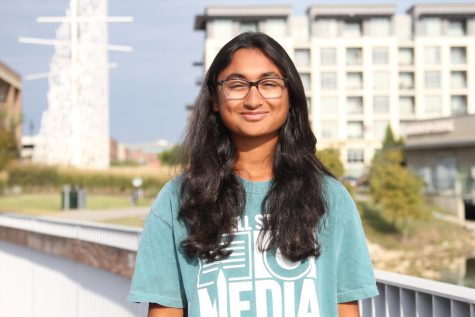
Saniya is a senior and the entertainment editor for The Sidekick. She is entirely too committed to her Goodreads Reading Challenge, enjoys music and obscure...

Shreya is a senior and second year staff photographer for The Sidekick. In her free time, she enjoys listening to music, watching, yet another, tv series,...



